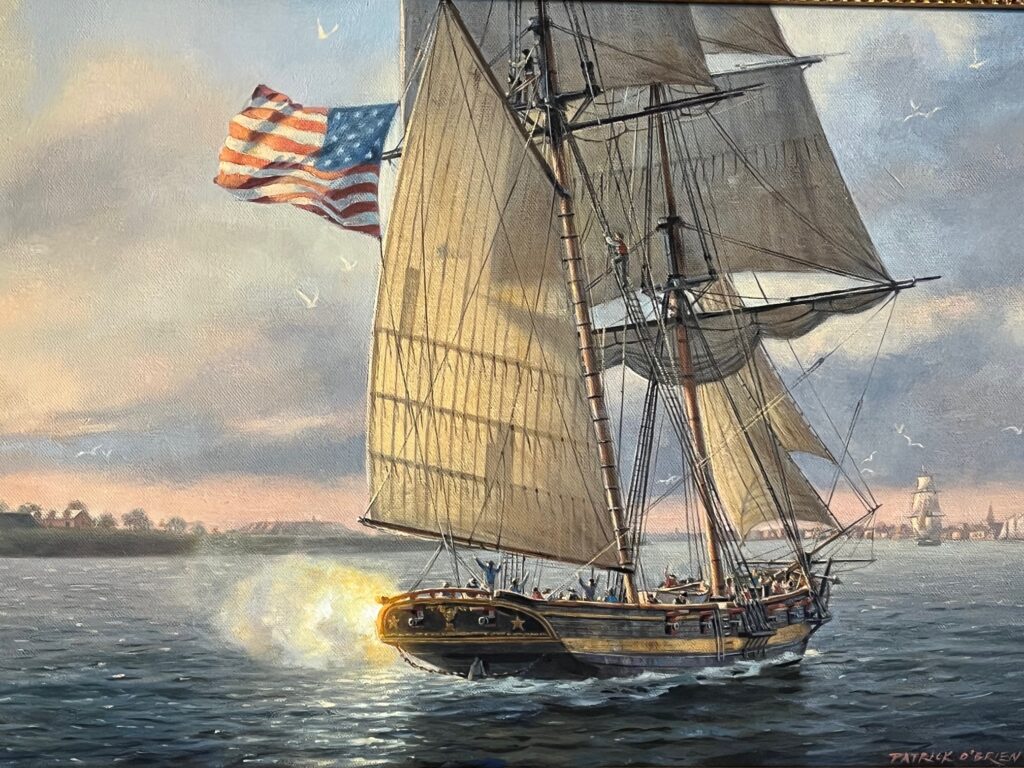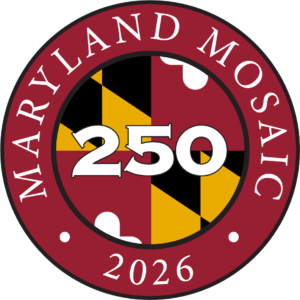Thomas Boyle sends a message from the English Channel to London announcing that he and the crew of his single topsail schooner Chasseur are blockading the British Isles. The proclamation, posted in Lloyd’s London Coffee House, causes a short panic in the British shipping community and temporarily raises shipping insurance rates.
The Chasseur, built in Baltimore’s Fells Point in 1812, has an active career as a privateer, easily escaping a British Chesapeake blockade and preying on British shipping. When Thomas Boyle takes command in 1814, Chasseur already has as many as 11 lucrative prizes to her credit.
Boyle continues the schooner’s record off the coast of Europe and in the English Channel. He issues his proclamation to draw attention to the British “paper” blockade of the Chesapeake Bay which he regards as useless. Black gunner George Roberts, a member of the crew, later becomes a fixture in Baltimore 1812 veteran reunions.
Boyle continues his forays in the West Indies after the War of 1812 ends. His capture of a British man-of war after a severe fight off the Cuban coast makes Chasseur Baltimore’s most celebrated privateer.
After the War, the Chasseur enters the China trade and is the first ship to get to Canton. Returning to its home port, the clipper earns the title, Pride of Baltimore. Baltimore is now the home port of the Pride of Baltimore2, a replica of the Chasseur.
For More Information
Star Spangled Banner National Historic Trail
Society for the Preservation of Fells Point and Federal Hill




